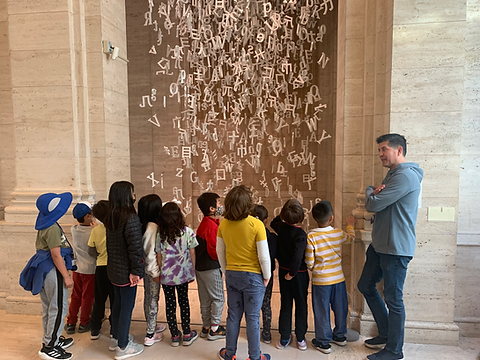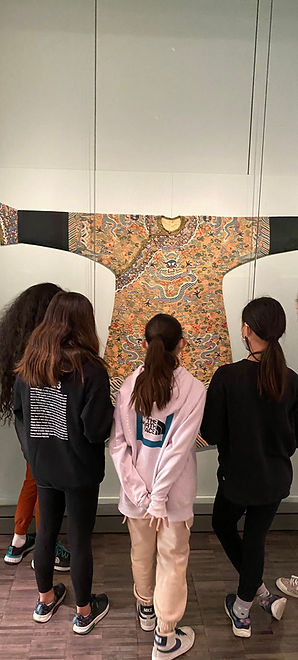SYSTEMATIC GEOGRAPHY CURRICULUM
Geography is one of the great strengths of Montessori! In our elementary program, we build upon the puzzle maps children worked with in Children’s House. Instead of just drawing political boundaries, students now learn about more advanced content, from flags to capitals, from mountain ranges to rivers, and from animals to plants. They also learn about other map skills, such as identifying compass directions, map scales, and naming physical features.

INSPIRATION VIA THE MONTESSORI GREAT STORIES.
While many other curricula start small, Montessori elementary starts big! The Montessori Great Stories tell about the origin of the world, life, humans, language, writing, and mathematics. They provide a scaffold where children can hang the knowledge they acquire in the classroom, and they leverage curiosity and imagination to keep learning intrinsically motivated.
A SCIENCE PROGRAM BASED ON EXPERIENTIAL LEARNING.
Our science program aims to help children discover answers to common questions like: "Why do we have night and day, and summer and winter? What happens when we stir the salt in a solution? Where do pebbles come from?" Answers come from lessons, often using models or experiments, as well as from independent work, which may be guided by written instructions. Often, we integrate field trips to help children see how what they learn in class plays out in the real world.


A SYSTEMATIC GEOGRAPHY CURRICULUM.
Geography is one of the great strengths of Montessori! In our elementary program, we build upon the puzzle maps children worked with in Children’s House. Instead of just drawing political boundaries, students now learn about more advanced content, from flags to capitals, from mountain ranges to rivers, and from animals to plants. They also learn about other map skills, such as identifying compass directions, map scales, and naming physical features.
HISTORY STUDY CENTERED AROUND UNDERSTANDING THE LIVES OF PEOPLE IN DIFFERENT AGES AND PLACES.
The Montessori elementary history curriculum builds on a strong foundation of helping children understand how the lives of humans have changed throughout time. First graders begin by identifying how they satisfy a wide range of fundamental human needs—from food to shelter, from defense and transportation to spiritual needs. They then apply this concept of the fundamental needs toward studying people throughout history, and in different places today. Combined with related reading, this makes for a vivid introduction to ideas in history, and lays the foundation for later, a chronological study in history.

